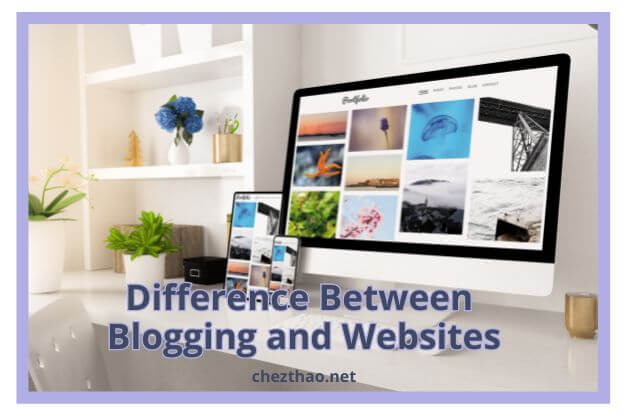In the vast realm of the internet, where digital presence has become paramount, understanding the nuances between blogging and having a website is crucial. Both serve as powerful tools for online communication, but their purposes, structures, and functionalities vary significantly. In this exploration, we will delve into the differences between blogging and websites, helping you navigate the digital landscape with clarity.

Table of Contents
Defining Blogging and Websites:
Blogging: A Dynamic Chronicle of Ideas
Blogging is essentially a form of online journaling that allows individuals or organizations to share their thoughts, experiences, and expertise with a global audience. It is characterized by a series of regularly updated posts displayed in reverse chronological order. Blogs often have a conversational tone, fostering engagement with readers through comments and discussions.
- Purpose: Blogs are versatile platforms used for personal expression, content marketing, and niche-specific discussions.
- Content: Typically, blog posts are shorter and more focused, covering specific topics in depth.
- Interactivity: Blogs often encourage reader interaction through comments and social media sharing.
Websites: The Digital Hub of Information
A website is a broader term that encompasses various online entities, including blogs. Unlike blogs, websites serve as comprehensive digital spaces where information is organized, and users can explore different sections. Websites can include static pages, dynamic content, e-commerce capabilities, and more.
- Purpose: Websites are versatile and can serve a multitude of purposes, from providing information to promoting products or services.
- Content: Websites host a wide range of content types, including static pages, multimedia, and interactive elements.
- Structure: Websites often have a hierarchical structure with a homepage leading to different sections and pages.
Key differences between blogging and websites:
Content Structure:
- Blogging: Emphasizes a stream of regularly updated, time-stamped posts.
- Websites: Offers a structured layout with various pages and sections for diverse content.
Interactivity:
- Blogging: Prioritizes reader engagement through comments and social media sharing.
- Websites: Focuses on presenting information, with interactivity features varying based on the website’s purpose.
Purpose and Focus:
- Blogging: Primarily serves as a platform for personal expression, niche discussions, and content marketing.
- Websites: Adaptable to a wide range of purposes, including business representation, e-commerce, portfolio showcasing, and more.
In the dynamic world of the internet, understanding the difference between blogging and websites is essential for individuals and businesses alike. While blogging thrives on personal expression and engagement, websites offer a broader canvas for diverse online activities. Whether you choose to embark on the journey of a blog or establish a comprehensive website, the key lies in aligning your digital presence with your goals and aspirations. By recognizing the unique strengths of each platform, you can navigate the digital landscape with purpose and impact.
